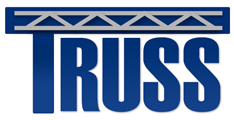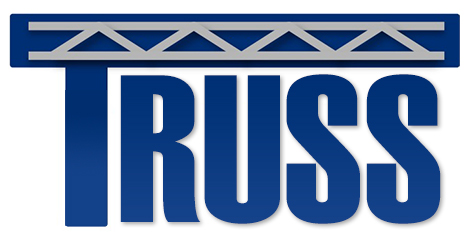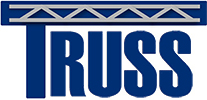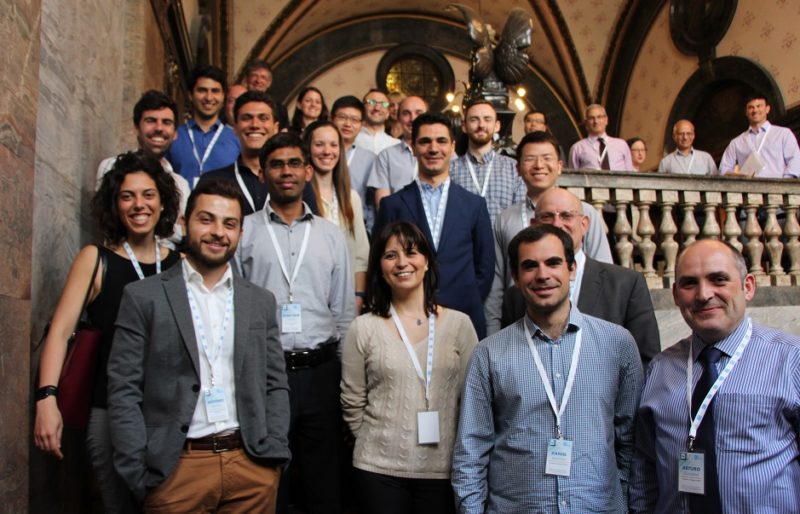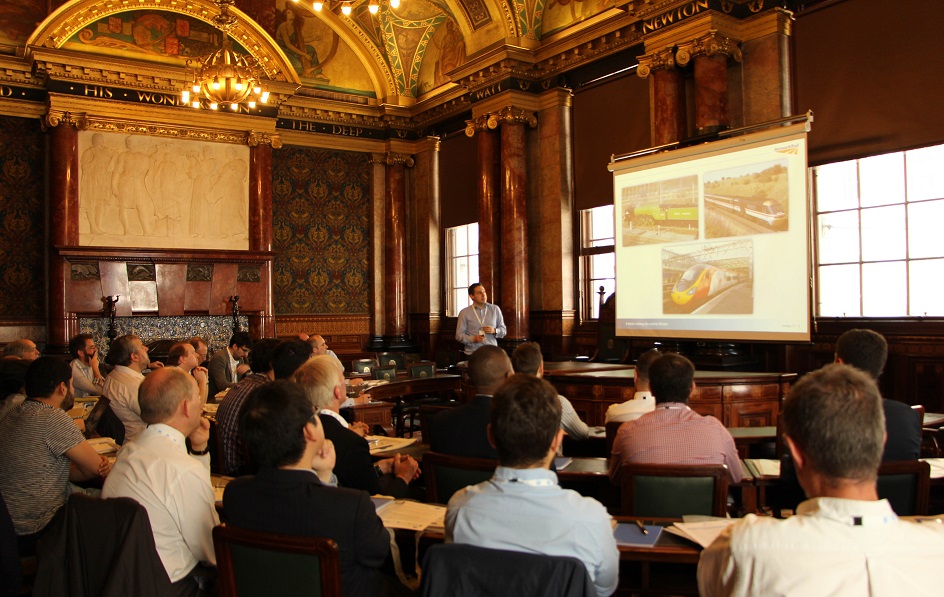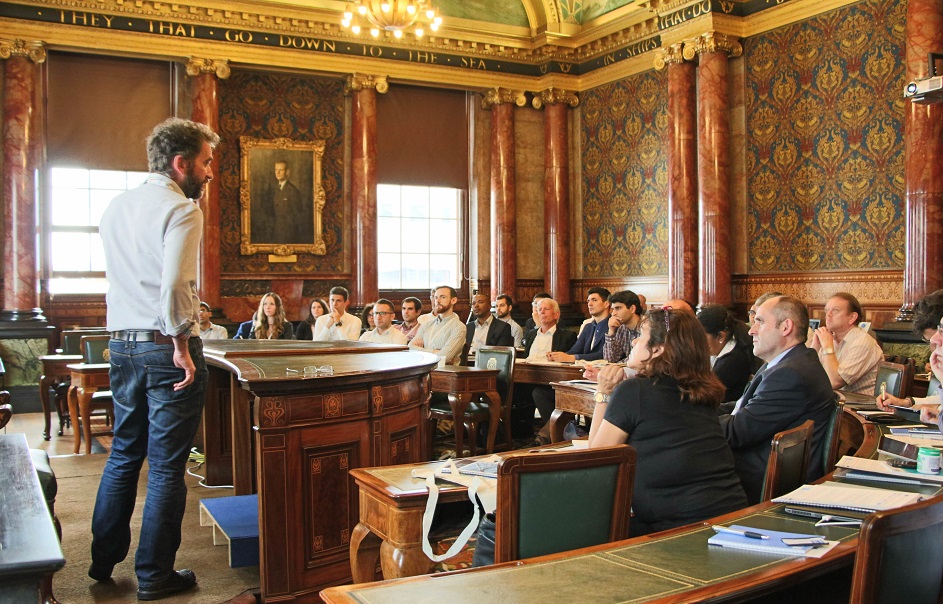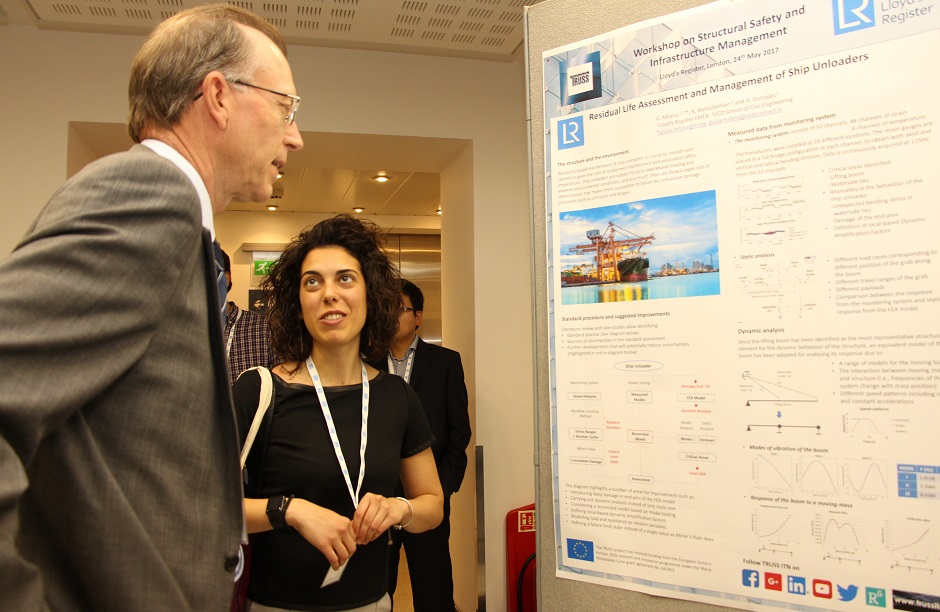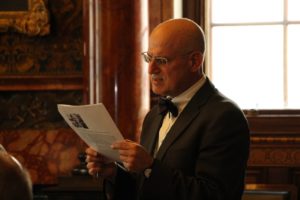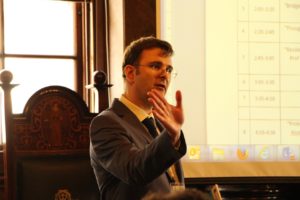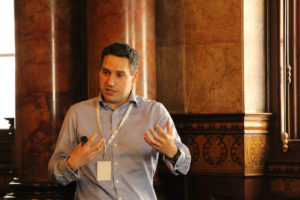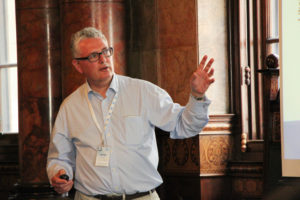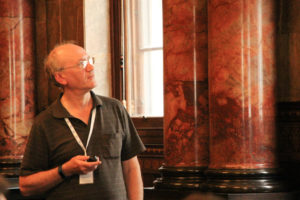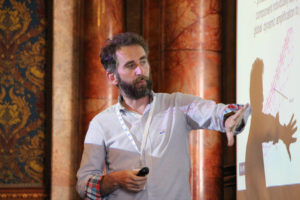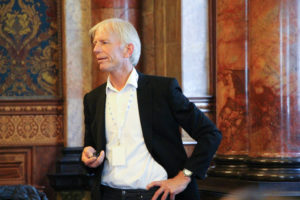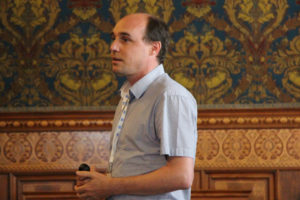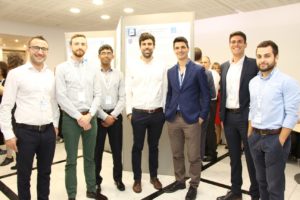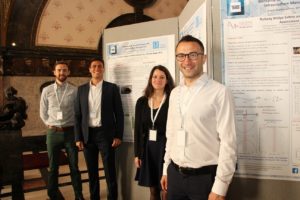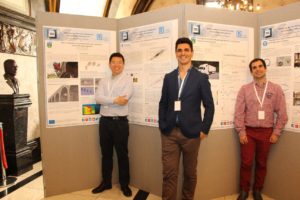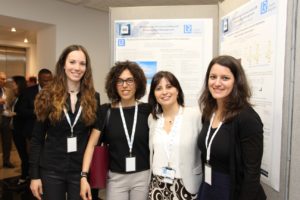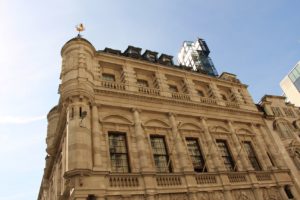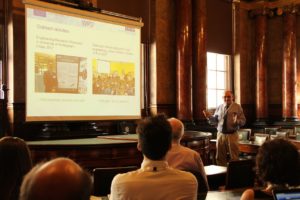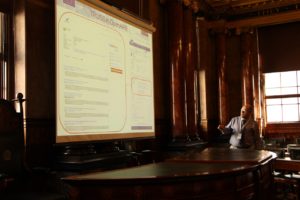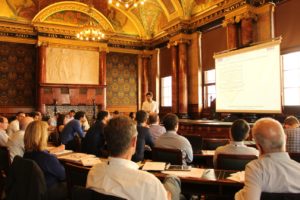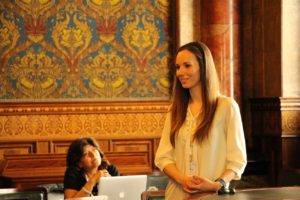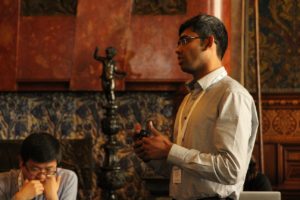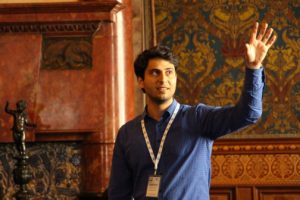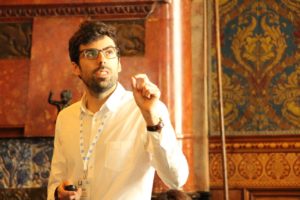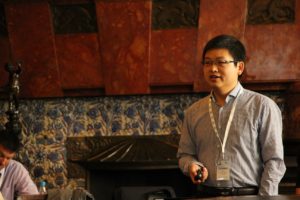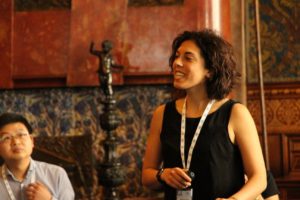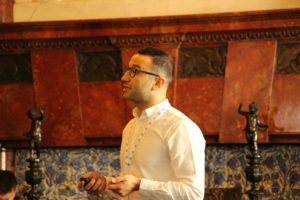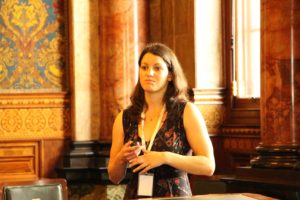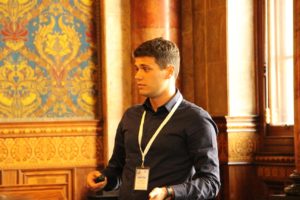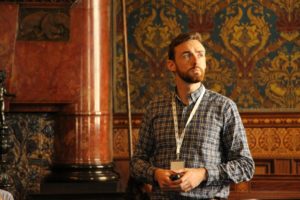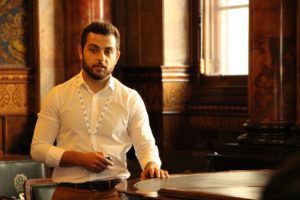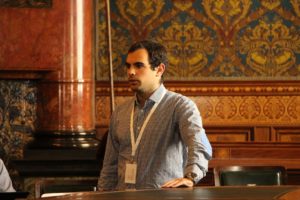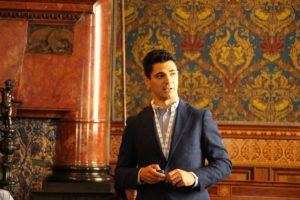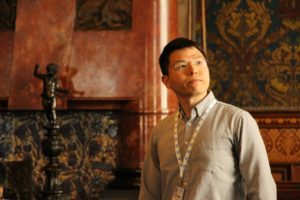The 2nd annual plenary meeting of TRUSS was hosted by Lloyd’s Register in their premises of 71 Fenchurch st. (London, UK), on the Wednesday 24th and Thursday 25th May 2017. The agenda included the delivery of 1st TRUSS Workshop and Supervisory and Management Board meetings.
- TRUSS Workshop on the 24th May. In order to attract a local audience, the workshop addressed challenges raised by London Infrastructure Plan 2050, i.e., how to maintain buildings, energy and transport infrastructure that constitute the basic pillars for providing social and economic benefits to a growing London. The conclusions of the workshop can be easily extended to the context of other European cities. The workshop was organized through interaction with local professional organizations (i.e., Lloyd’s Register Trust Fund, Network Rail, John Dora Consulting, and Imperial College London). Guest speakers from outside the consortium were also invited to give talks. The workshop featured talks by a panel of 6 renowned experts, discussions and a poster exhibition showcasing 14 related projects by TRUSS Early Stage Researchers. The targeted audience were policy makers, owners, operators, managers, research scientists, engineers and practitioners interested in life cycle maintenance, risk and probabilistic analysis of engineering structures and structural health monitoring. Direct invitations by email and flyers were posted to people with profiles fitting the themes of the workshop. Additionally, an extensive social media campaign with ads using YouTube videos, Twitter, Facebook, LinkedIn, and Google+ were employed to promote the event. The event was free, but registration was essential due to limited seats available, which was managed via Eventbrite.
Kian Banisoleiman, main supervisor of ESR5 and ESR6 hosted by Lloyd’s Register, chaired the workshop and introduced all speakers. The event was opened by Mark Stokes, Group Communications Director at Lloyd’s Register, who welcomed the attendants, and briefly talked about the building and the educational role of Lloyd’s Register.
- Kian Banisoleiman (LLoyd’s Register)
- Mark Stokes (Lloyd’s Register)
Together with the 14 Early Stage Researchers and their individual TRUSS projects, the following experiences in structural safety, probabilistic analysis and health monitoring by worldwide experts were presented:
- “Bridge Management Asset at Network Rail” by Robert Dean (Network Rail)
- “Thoughts about the Risks in Adopting Risk-Based Strategies” by John Dora (John Dora Consulting Ltd)
- “Resilient Infrastructure: the Role of Structural Health Monitoring” by Prof James Brownjohn (Full Scale Dynamics Ltd and University of Exeter)
- “Probabilistic Assessment of Bridges – Case Study Presentation” by Assoc. Prof Alan O’Connor (Trinity College Dublin and Roughan & O’Donovan Innovative Solutions)
- “Decision Theoretical Framework to Offshore Structural Integrity Management” by Prof Michael Havbro Faber (Aalborg University)
- “Methods and Tools for Reliability Assessment” by Dr Thierry Yalamas (Phimeca Engineering)
There were a total of 43 attendees, including independent consultants, and non-academic institutions such as Arup, Equipos Nucleares SA, Full Scale Dynamics Ltd, John Dora Consulting, Lloyd’s Register, Microlise Ltd, MPW R&R Ltd, Network Rail, Phimeca Engineering, Rolls Royce, Transportation Research Laboratory and WPA Design & Build Ltd. Academic researchers from Aalborg University, Cranfield University, Imperial College London, King’s College London, Trinity College Dublin, University College Dublin, University College London, Universitat Politecnica Catalunya and University of Nottingham also attended the event. During the workshop, ESRs had the opportunity to improve their knowledge and expand their horizons further, and also to practise their networking and communication skills via a poster presentation to interested stakeholders. Discussions continued during the network dinner that took place after the workshop. Some pictures taken at the poster exhibition can be seen below. All posters by ESRs, presentations by speakers and further details are found in http://trussitn.eu/page?p=16562
- Farhad, JJ, Shah Nur, Rui, Federico, Matteo and Antonio
- JJ, Matteo, Barbara and Farhad, getting ready for the poster presentation
- Siyuan, Federico and Daniel standing besides their posters
- Sofia, Giulia, Loreto and Barbara
- Supervisory Board and Management meetings on the 25th May. The project coordinator (Dr. Arturo Gonzalez) first reviewed financial matters and other items with the members of the Supervisory Board composed by Salam Al-Sabah from Arup, Luis Costas from ENSA, Kian Banisoleiman and Wendy Mann from Lloyd’s Register, Thierry Yalamas from Phimeca Engineering, Gordon Airey and Luis Neves from UNOTT, Joan Ramon Casas from UPC, Eugene OBrien, Debra Laefer and Loreto Manriquez from UCD, and Matteo Vagnoli as ESR representative. Further on, all ESRs joined the meeting to follow progress in all Work Packages and to report on their own research.
- Lloyd’s Venue in London
- PC reporting on outreach activities
- PC reporting on publications
- Rui reporting on research progress
- Communication Skills. Each ESR presented the progress on their research and answer questions to the TRUSS consortium and local researchers from UK. These presentations were followed by separate meetings of each ESR with a small group of experts (DSPs) that provided feedback on the personal career development plan (PCDP) and research ideas.
- ESR1 Sofia Antonopoulou
- ESR2 Shah Nur Alam Sourav
- ESR3 Alberto Gonzalez Merino
- ESR4 Rui Teixeira
- ESR5 Guang Zou
- ESR6 Giulia Milana
- ESR7 Farhad Huseynov
- ESR8 Barbara Heitner
- ESR9 Matteo Vagnoli
- ESR10 JJ Moughty
- ESR11 Antonio Barrias
- ESR12 Daniel Martinez Otero
- ESR13 Federico Perrotta
- ESR14 Siyuan Chen
